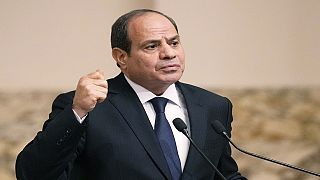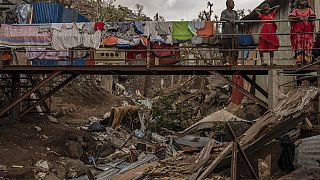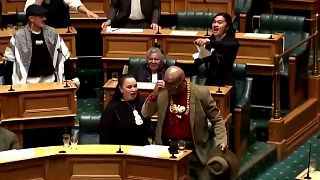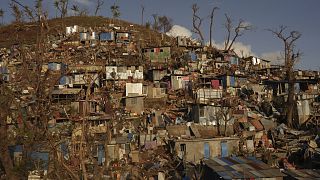New Zealand
Tens of thousands of people took to the streets of New Zealand’s capital Wellington on Tuesday, in what was likely the largest-ever demonstration in support of Māori rights.
They were protesting against a proposed law that will reshape the country’s founding treaty between the Indigenous people and the British Crown.
Lawmaker, Hana-Rawhiti Maipi-Clarke of Te Pāti Māori, who was suspended from parliament for a day after she stood up during the vote last week and began a ringing haka, spoke to the crowd amid cheers.
"I may have been suspended for 24 hours and not let in the gates to the (parliament) debate chambers, but the next day I showed up outside the steps with 100,000 of my people, marching with heads held high and our flags waving with pride," she said.
For many, the march was also a celebration of the resurgence in Indigenous language and identity that colonisation had once almost destroyed.
It also reflected a growing solidarity on Indigenous rights from non-Māori and a rising knowledge among New Zealanders of the 1840 Treaty of Waitangi’s promises to the Māori.
The proposed bill would change the meaning of the principles of the 1840 agreement and prevent them from applying only to Māori.
As the marchers moved through the streets with ringing Māori haka - rhythmic chants - and songs, thousands more holding signs lined the pavement in support.
"We will never, ever have to decide who can mess with our rights and our sovereignty as an Indigenous people here in Aotearoa [Māori name for New Zealand],” said Maipi-Clarke.
“We are the kingmakers, we are the sovereign people of this land and the world is watching us here, not because of the system. Not because of the rules, but because we haka."
In parliament, speeches from political leaders drew attention to the reason for the protest.
While the bill lacks enough support to pass, opponents see it as an attempt to reverse decades of progress in empowering the Māori.
They face significant social and economic disadvantages despite making up around 20 per cent of the 5.3 million population.
This is despite attempts by the courts and lawmakers in recent decades to rectify inequities caused in large part by breaches of the Treaty.
The protest on Tuesday followed a nine-day march that mobilised thousands of people nationwide, culminating in the capital.













01:28
Gaza death toll surpasses 45,000 as Israeli offensive continues
01:28
Taking into account human rights is key in ending AIDS- UN report
Go to video
World's longest detained journalist wins rights prize
01:05
Nigeria: Tinubu orders release of child protestors
Go to video
Viral Facebook video poses threat to Nigeria’s LGBTQ+ community - Meta
00:59
DR Congo, Ethiopia, Kenya elected to Human Rights Council